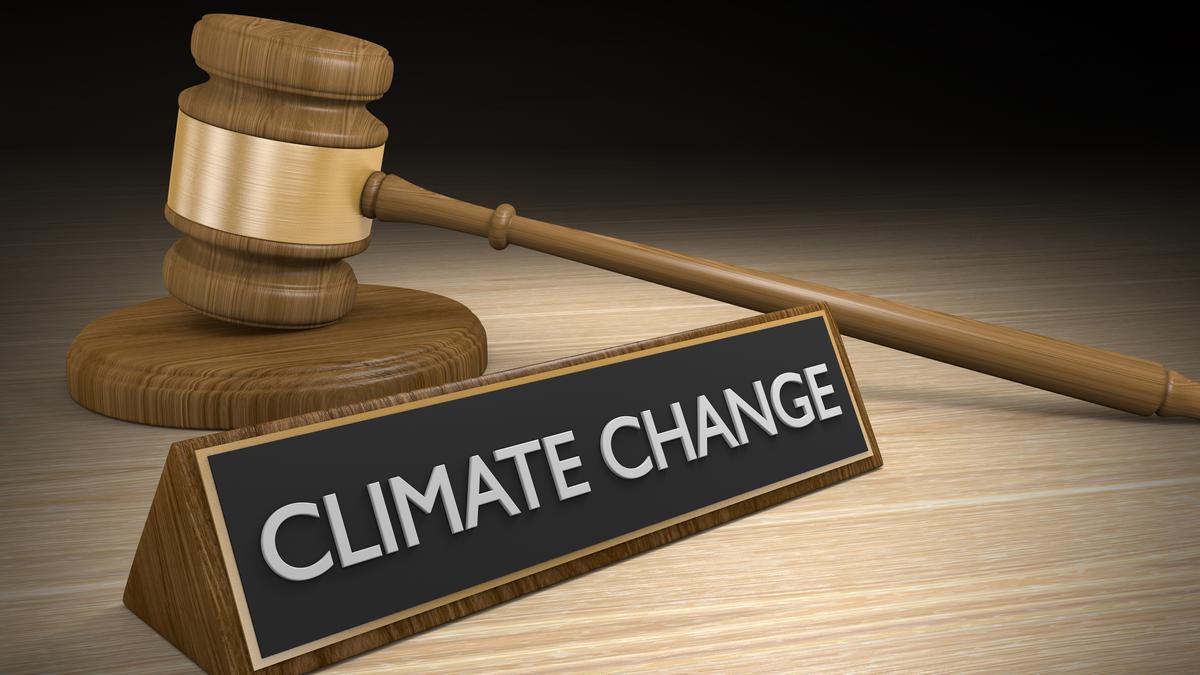
‘Developed nations can face more pressure now to better fulfil their commitments to climate finance and technology transfer’
| Photo Credit: Getty Images/iStockphoto
In light of the existential threat posed by climate change, the International Court of Justice (ICJ), also known as the World Court, delivered a landmark advisory opinion on the obligations of states concerning climate change. Advisory opinions, while not technically binding, are regarded as authoritative interpretations of international law by the World Court. They can influence the behaviour of states by generating international pressure. A notable example is the United Kingdom’s handover of the Chagos Islands to Mauritius, which followed the advisory opinion on the matter.
States cannot ignore their duties
The World Court unanimously ruled that states have legal obligations to protect the climate system and clarified the consequences for failing to meet these obligations. Recently, other international courts, such as the International Tribunal for the Law of the Sea (ITLOS) and the Inter-American Commission on Human Rights (IACHR), have also recognised significant responsibilities for states in addressing climate change. This issue transcends politics; states cannot ignore their duties.
This advisory opinion is noteworthy in many aspects. First and foremost, the court has interpreted all climate treaties, including the United Nations Framework Convention on Climate Change, the Kyoto Protocol, and the Paris Agreement, in a seamless manner, along with the best available scientific consensus, to strengthen the operation of many of the treaty provisions. For example, the Paris Agreement aims to limit the increase in global average temperatures to “well below 2°C” and “pursue efforts” to limit it to 1.5°C above pre-industrial levels. However, the court used current scientific consensus as well as subsequent conference of parties (COP) decisions to hold that 1.5°C is the relevant threshold that states must work towards. Similarly, the Paris Agreement requires parties to prepare their Nationally Determined Contributions (NDCs), which outline the climate actions they plan to take. However, the court rejected the argument that states had unfettered discretion in preparing their NDCs and that NDCs did not create any legally binding obligations on states. It held that, due to their duty of due diligence and cooperation, states must ensure that their NDCs reflect their ‘highest possible’ ambition and must proactively take measures that are reasonably capable of meeting those NDCs.
The decision also has significant implications for the Global North-South divide and climate justice, with the court highlighting the importance of the principle of common but differentiated responsibilities and respective capabilities (CBDR-RC). Accordingly, the standard for assessing countries’ climate actions would depend on factors such as historical emissions, level of development, and current national circumstances. The court also explained the duties of cooperation and assistance, and clarified that developed countries have a legally binding obligation to provide financial resources and technology transfer to developing countries for both mitigation and adaptation. While the Paris Agreement does not specify a specific level of financial support, the court observed that this obligation must be interpreted in light of the overall temperature goal and subsequent agreements. Breach of this obligation can be assessed against a standard of good faith and due diligence.
Self-contained regime
Notably, the court rejected the argument of some countries, including India, that the climate treaties constituted a self-contained regime and that the principles and rules of general international law and environmental law were inapplicable. The court identified obligations to mitigate climate change, including the duty of due diligence, the duty to prevent significant harm to the climate system, and the duty to cooperate in protecting the climate, stemming from various environmental treaties, the Law of the Sea Convention, and uncodified customary international law. The court also noted the adverse effects of climate change on various human rights, particularly the rights of especially vulnerable peoples, which must be taken into account by countries when taking climate action. In practice, this means that withdrawal from climate treaties, as the United States has done, does not exempt a country from its climate-related obligations. It also means that, in working toward a green transition, countries must ensure that human rights are not violated and that a just transition is achieved.
The court dismissed the argument that countries cannot be held individually responsible for violating these obligations, because proving causation and attribution is difficult. It pointed out that it is scientifically possible to determine each state’s total contribution to global emissions, considering both historical and current emissions.
This is leverage for the Global South
It is noteworthy that the small island-states, which face an existential threat due to climate change, were the ones that pushed the UN General Assembly to request this advisory opinion. This is a significant legal victory for them and will strengthen their efforts to hold major emitters accountable and push for more ambitious action. This decision is likely to bolster the ongoing strategic litigation concerning climate change in various countries, where the climate actions taken by the countries have been challenged as insufficient and violative of human rights, including the Ridhima Pandey case pending before the Indian Supreme Court. Countries in the Global South, such as India, can leverage this decision to collectively pressure developed nations to better fulfil their commitments to climate finance and technology transfer, while resisting policies that disproportionately impact developing countries.
Prabhash Ranjan is Professor and Vice Dean (Research), Jindal Global Law School. Rahul Mohanty is Assistant Professor, Jindal Global Law School
Published – August 08, 2025 12:08 am IST
